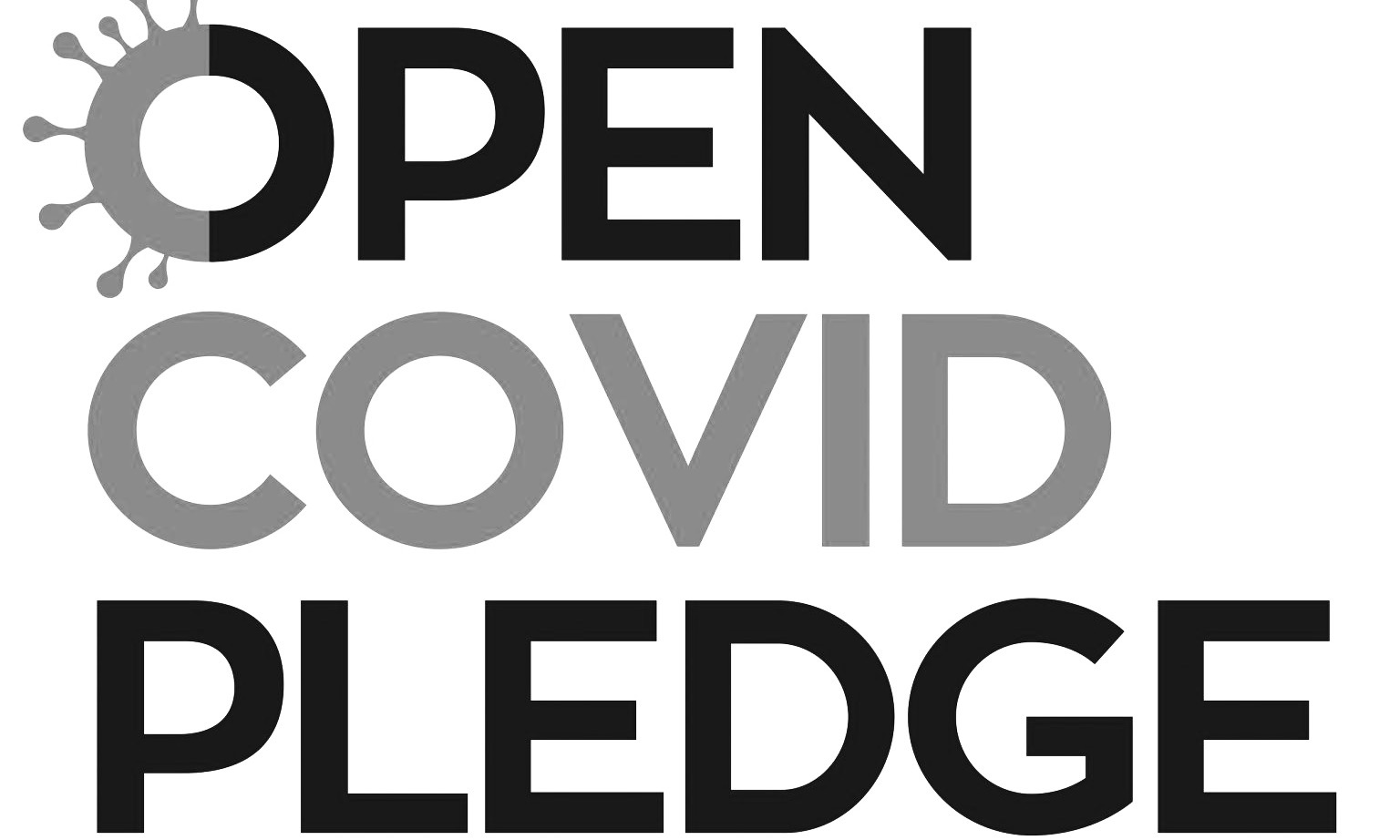Open COVID Pledge
The fight against the coronavirus pandemic shows us every day the importance of open access to knowledge and innovations that help save lives. Especially important are educational materials, designs of protective equipment and patents on drugs, for instance. While intellectual property rights are, under normal circumstances, generally useful for the development of our society, they can have a negative wider impact in the current situation. An international coalition of scientists, lawyers and engineers are thus inviting the right holders of intellectual property rights to give free access to their rights in these times of crisis.
Open COVID Pledge has created different voluntary licences that are available to right holders:
– OCL-PC v1.0 (This license grants permission to the worldwide public to exercise all of the pledgor’s patent rights and copyrights, royalty free. This license starts on December 1, 2019, and ends one year after the World Health Organization (WHO) officially declares an end to the COVID-19 pandemic.)
– OCL-PC v1.1 (This license grants permission to the worldwide public to exercise all of the pledgor’s patent rights and copyrights, royalty free. This license starts on December 1, 2019, and ends at the WHO declaration that the COVID-19 pandemic has ended, or January 1, 2023, whichever happens first. The pledgor may grant an extension of that final date)
– OCL-P v1.1 (This license grants permission to the worldwide public to exercise all of the pledgor’s patent rights, royalty free. This license starts on December 1, 2019, and ends at the WHO declaration that the COVID-19 pandemic has ended, or January 1, 2023, whichever happens first. The pledgor may grant an extension of that final date)
In addition to the listed licences, compatible licenses are available, such as the CC BY 4.0 International Licence, CC 1.0 Public Domain Dedication and Intel’s licence.
Open COVID Pledge has been a great success and has been widely supported. The founding adopters of the pledge are United Patents, Fabricatorz Foundation, Facebook, Amazon, IBM, Sadia National Laboratories, Hewlett Packard Enterprise and Microsoft.
The Intellectual Property Institute is a supporter of the Open COVID Pledge. We have translated into Slovenian the following content:
– Open COVID Pledge
– Making and Implementing the Open COVID Pledge
– Support the Open COVID Pledge
The Grand Board of the European Union Intellectual Property Office (EUIPO) finally ruled that the figurative sign ‘COVIDIOT’ cannot be registered as an EU trademark.
The 4th Open Knowledge Day took place on Tuesday 17 October 2023, with an accompanying workshop on 18 October 2023. This year it was organised by the Open Data and Intellectual Property Institute (ODIPI) and supported by Knowledge Rights 21 (KR21).
We invite you to the fourth Open Knowledge Day and the workshop, which will take place this year within the framework of the programme and with the support of Knowledge Rights 21. The event will bring together experts from different European countries to discuss two topics: the first part will deal with the legal basis for data analytics, which is a key part of machine learning and related artificial intelligence, and the general exception for research. In the second part, open science in theory and practice will be presented both in Slovenia and in some Western Balkan countries. Representatives of research and educational institutions from Slovenia and the Western Balkan countries, as well as interested members of the public, are invited to attend.
Dr. Maja Bogataj Jančič, a renowned expert in copyright law, has joined the Berkman Klein Center for Internet & Society at Harvard University, where she will serve as an affiliate researcher for the next two years.





